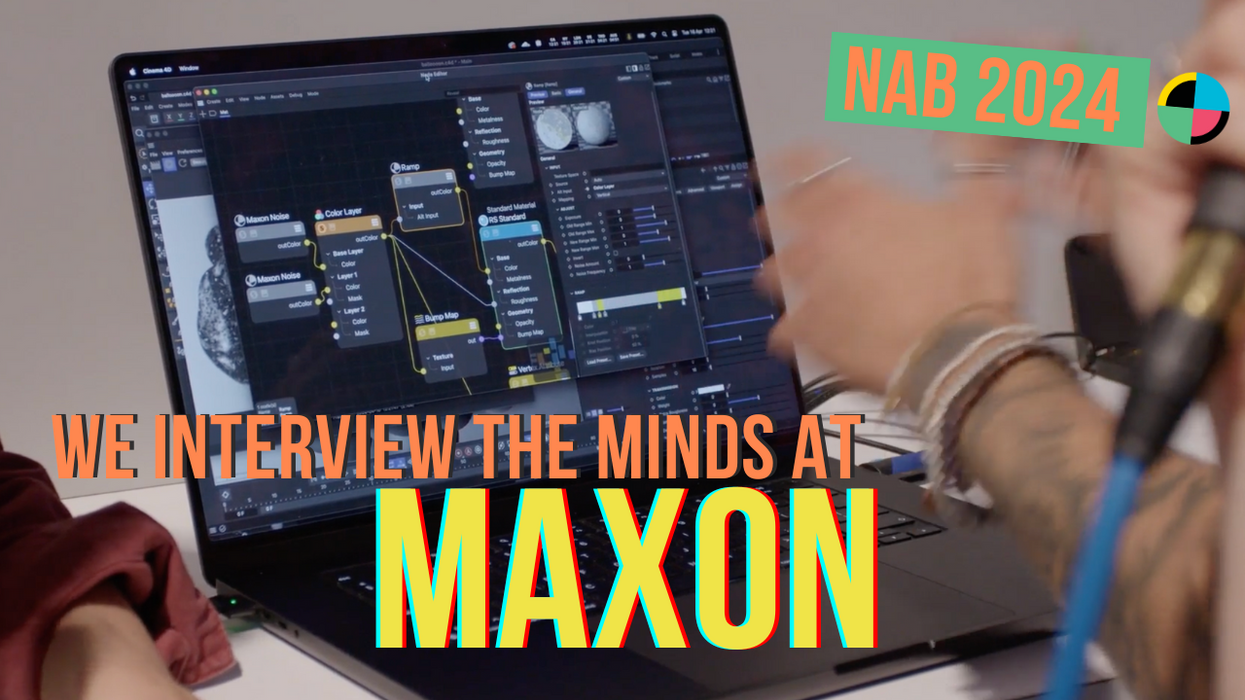How the Dardenne Brothers Used an 'Overflowing' Camera to Tell the Story of a Radicalized Teen
Directors Jean-Pierre and Luc Dardenne discuss their unique filmmaking process, which attempts to 'surpass the limits.'
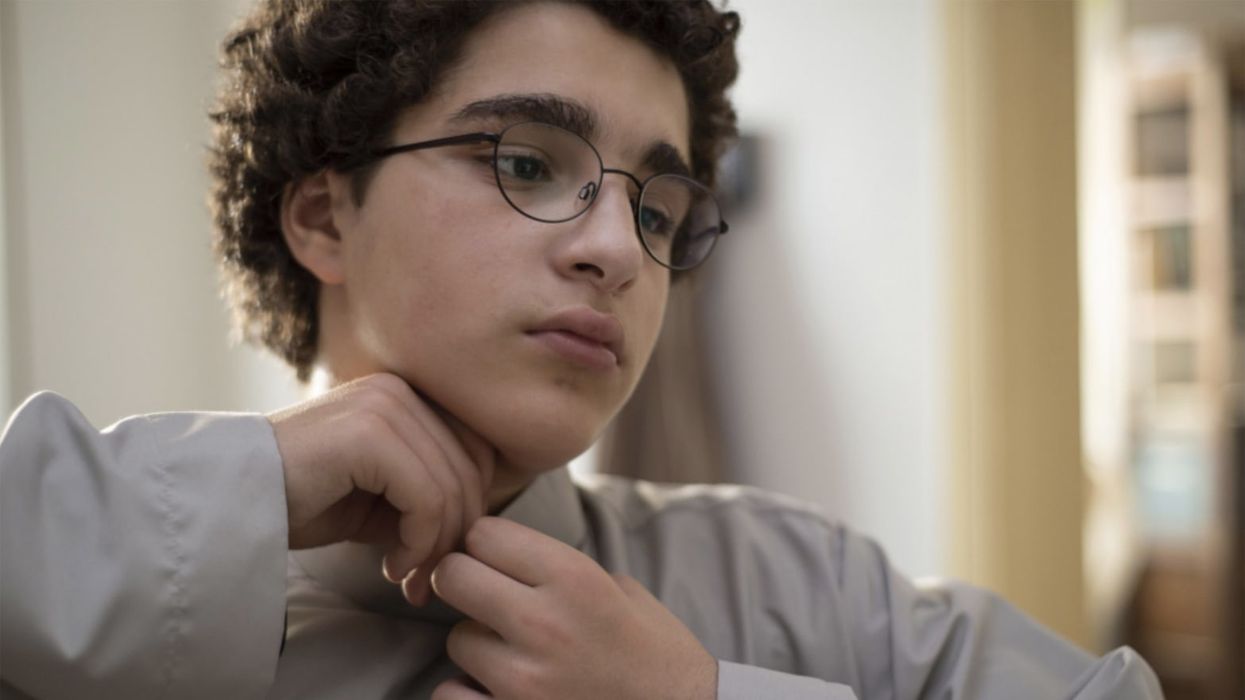
Jean-Pierre and Luc Dardenne are known for their humanistic films about the working class, which are anchored in realism by one-takes and understated performances. When I last spoke to the Belgian co-directors, who are also brothers, I described them as "master architects of realist cinema who have thrown away the blueprints...by allowing their characters to surprise them in long takes, during which the camera seemingly moves without agenda."
This has never been truer than in their latest film, Young Ahmed. The Dardennes always meticulously design their filmmaking process to capture verisimilitude (for example, they shoot chronologically)—but here, working with a non-actor (Idir Ben Addi), very opaque subject matter, and a wandering camera, they exceed their own formalistic expectations. The result is a movie that is bursting at the seams with rage and chaos despite its spare approach, and that's exactly what the brothers intended.
"We don't want it to look as if we say to the actors, 'Okay, this is your frame. Go and act in there.'"
Young Ahmed is the story of Ahmed, a 13-year-old Belgian-Arab boy who becomes radicalized. His descent into religious extremism is fueled partially by his Imam at the local mosque, who condemns "infidels" and celebrates jihadists, such as Ahmed's cousin, who went abroad to become a "martyr." Ahmed soon becomes fixated on his math teacher, Ines (Myriem Akheddiou), whom Ahmed deems to be "unpure" because she is dating a Jew and has other liberal-leaning tendencies. No matter that Ines helped Ahmed overcome his dyslexia with patience and empathy; Ahmed is determined to kill her for her sins.
No Film School sat down with the world's most famous co-directors discuss their rehearsal strategy, documentary-style cinematography, how they make the most out of a tight production schedule, and more.
No Film School: The cinematography in this film is extremely claustrophobic; we're always close on Ahmed, and he never gives us total access to his inner life. It's like we're chasing him around, trying to get up close and understand him.
Luc Dardenne: We wanted to be very close to him so that, in a sense, we could lock him into the frame, the way that he's locked himself into fanaticism. He's constantly escaping the camera in these tight frames, which is a little behind him. He knows something we don't, so we're coming after him.
He also avoids us through his gaze. His eyes are often looking away. Generally, the camera is a little bit high, and he has his eyes looking down. It's as if—and I insist on as if—he's in his fanatic bubble and he's not communicating.
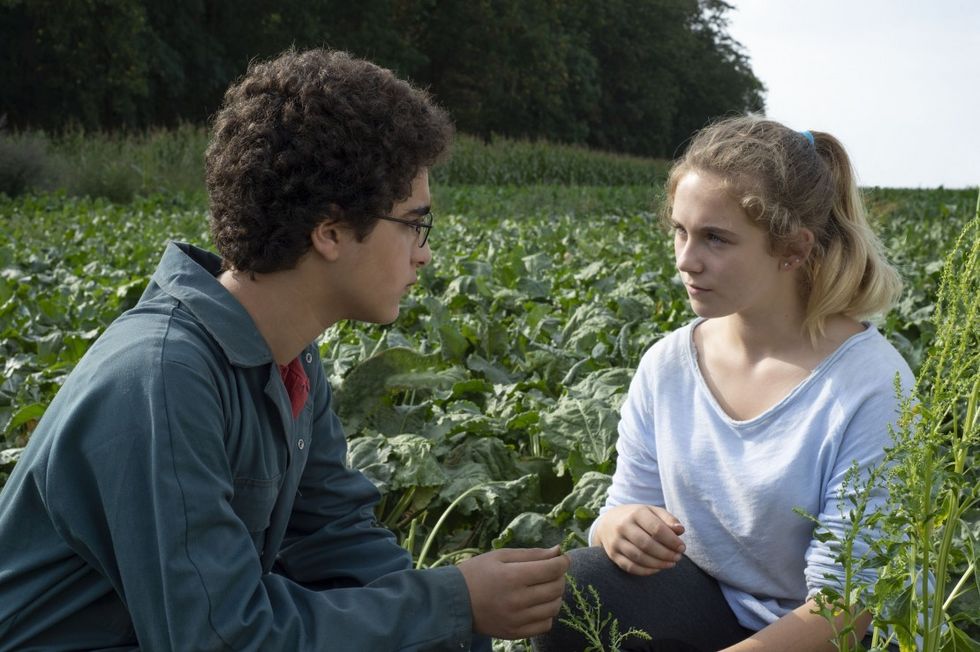
NFS: When we last spoke, you talked about how you tightly choreograph your scenes. I'm sure the process was more intense in this film, given how close we are to Ahmed in every frame.
Jean-Pierre Dardenne: There's a long scene in the film where Ahmed is having an argument with his mother at home. We wanted to shoot the whole scene in a single shot. We tried to move the camera as if unintentionally—as if every time a character moves, we're modifying the camera angle to accommodate.
The scene was written like this. When it begins, the action has already started. We're already in the motion of the scene.
Luc Dardenne: We could have filmed the whole scene with the characters sitting around the table, having an argument. But we like to have the intensity of the relationship between the characters in motion.
"What we're trying to do with our style of filmmaking is to go beyond, to surpass the limits."
Luc Dardenne: When the characters move, it's like we're filming late; he's going this way, the camera's going that way. He stops. We have to back up. In a sense, the actors' bodies are ordering the camera to follow what they do. What we're trying to do is to film the present—to give you the sense that what is happening is happening right now, right before you.
When we were shooting, we would say to the cameraman, "You're following him too much. You're predicting his move." When the two of us look at the video return during the shoot, we want it to look as if the frame was not planned. We don't want it to look as if we say to the actors, "Okay, this is your frame. Go and act in there."
So, what happens in this scene is that the characters set it in motion, but in a sense it starts to go beyond them, to overflow. And that's what we're trying to do with our style of filmmaking—to go beyond, to surpass the limits. This film threatens to not be contained. And I think that with that feeling, we manage to create tension.
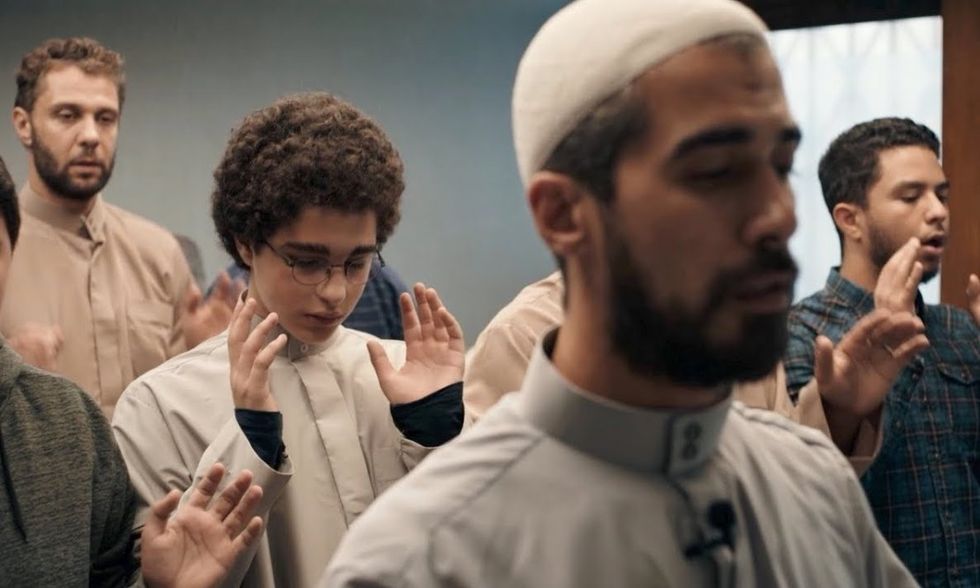
NFS: How do you evoke that feeling working with your actors—bringing presence and life to the screen by surpassing the limits?
Luc Dardenne: Well, there's a lot of rehearsal before the shoot. We work with the actors three or four weeks before we start shooting.
We start rehearsals with a little video camera. We ask the actors to act as if we weren't here with the camera. In the footage, we look for those moments of approximation, non-definition, tension. We might tell the actor, "Okay, go past that wall. You can hide there. And then we'll find you with the camera." But we don't tell the actors exactly what to do. The camera finds them where they are.
"We don't tell the actors exactly what to do. The camera finds them where they are."
Luc Dardenne: On this film, Idir had never acted before. So we did this method especially with him. We wouldn't tell him, "Stop here and go here." We would give him [general directions] and try to find his performance with the camera. It was very important that he not be too mechanical. That's a danger with actors. But at the same time, we have to construct the scenes, and that's something that the camera does more than the actor, and constructing meaning setting it up and knowing what we're going to do.
Jean-Pierre Dardenne: Everything that Luc just said about our shoot is possible because we rehearsed. We worked on the material in a sense as if we were working the dough. It's because we've rehearsed that when we get to the shoot, the actors have lost their fears, and that allows them to really be in the scene. I think that if we didn't rehearse, we would not be able to make the films the way that we do because of the tight production schedule.
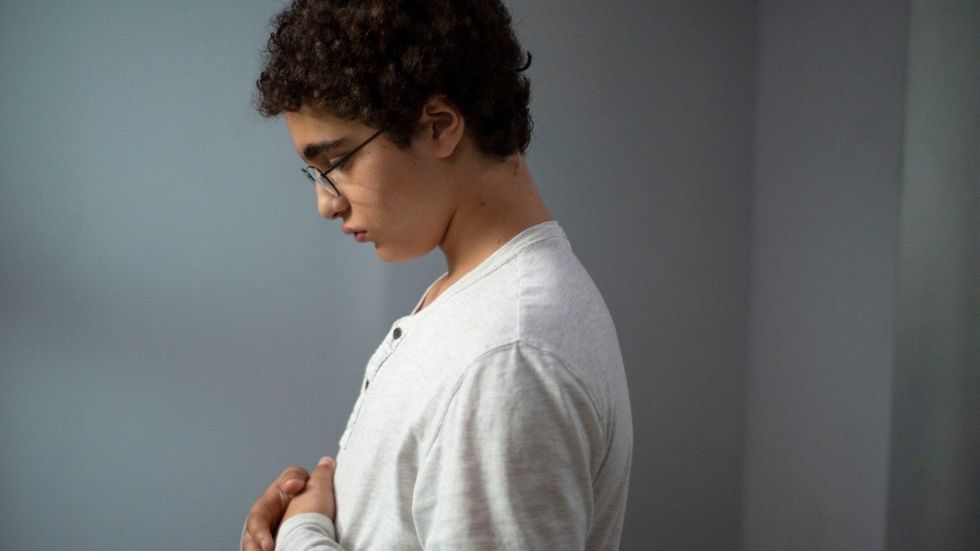
NFS: What kind of research do you do into the minds of young people who are susceptible to radicalization?
Luc Dardenne: We did a lot of research through talking to people, books, and the internet.
On the internet, it was interesting to see these young people asking questions of their imams through electronic chats. There's a very powerful awareness of sin. You know, "I did this. How serious is it? Will I still get into heaven?"
We talked to judges. We talked to social workers. We couldn't talk to the actual young people themselves because that's legally impossible. But we talked to all the people who surround them—the police, lawyers, parents, psychologists.
"We didn't invent a supporting character who would come and help Ahmed get out of fanaticism. We found that something bigger had to happen for him."
NFS: Did anything surprise you that you learned? Perhaps an insight into the way that these young minds work, which you incorporated into the film?
Luc Dardenne: We felt a little bit like [Ahmed's] mom: helpless. A woman told us that this film is about helplessness or being at a loss. You know, it's, "What can I do?" in the face of this young boy who's become a fanatic. We're at a loss.
We didn't invent a supporting character who would come and help Ahmed get out of fanaticism. We found that something bigger had to happen for him to fall from his idealism, his fanaticism.
You know, maybe, with time, someone could have helped him. Maybe his social worker could've helped him. But in our film, we told ourselves, "This love story we've written for him is beautiful, but that's not how anyone is going to get out of fanaticism." A psychiatrist told us that, generally, if a young person has actually gone through with some kind of fanatic action, he's most likely going to try to convert his girlfriend or his mother, and not the other way around. That's pessimistic, but that's what we were told.
